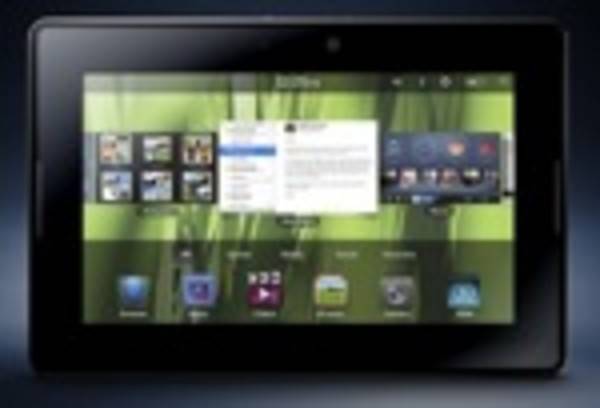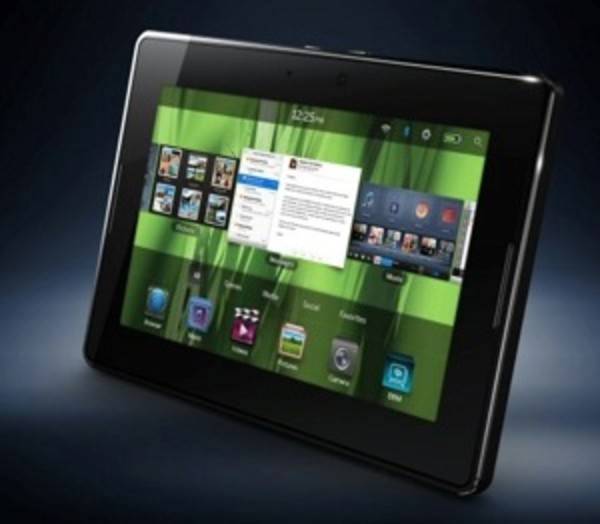As had been rumored, RIM officially announced yesterday that it will allow Android applications to run on its upcoming tablet computer, the PlayBook, when it launches on April 19th. The tablet will offer two optional “app players” which will provide run-time environments for BlackBerry Java apps and Android 2.3 apps, the company said. These players will be available from BlackBerry App World as free downloads and will be placed in a secure “sandbox” on the tablet computer. For developers, RIM promises an easy process of repackaging apps, code signing and re-submitting those apps to BlackBerry App World. By doing so, they will then have access to a new distribution channel – not only the PlayBook, but also the future RIM smartphones due out next year that will run the PlayBook’s same QNX-based platform.

Initially, the decision to open up the PlayBook to running a competing platform’s apps seems like a great idea for developers and consumers alike. But after more consideration, you have to wonder – what does this move say about RIM and its confidence in its own platform? Did it just lose any hope of attracting developers to build native apps? Did the PlayBook just become a “Frankentablet,” as many are now saying? Let us know what you think in this week’s ReadWriteMobile poll.
On the consumer side of the equation, knowing that the PlayBook runs Android apps – at least those where the developer has taken the extra effort to port the apps over – there’s a major benefit: choice. Non-iPad buying consumers can now purchase a tablet computer based on things like the hardware and specs, the user interface and design, and personal preference, without having to worry so much about the applications the tablet will or won’t run.

Android, Java, Web, Flash, AIR…is There Anything RIM Won’t Support?
In fact, RIM isn’t stopping at just supporting Android and Java apps on the PlayBook. It will also support apps built with Adobe Flash, Adobe AIR and those built using standard Web technologies via a solution called WebWorks. This is in addition to, of course, the native BlackBerry applications built for the tablet computer.
With so many options, there are questions raised too. How will RIM be able to support so many different applications on one tablet, and in the coming months, on the QNX-based smartphones it has in development? If RIM at launch is already conceding that Android has beaten it here on the applications front, what hope does RIM have for attracting developers who would then build the native (and therefore, better) BlackBerry apps the tablet needs to really stand out?
Native Apps are Better, Says RIM CEO
Independent mobile analyst Horace Dediu of asymco interpreted RIM co-CEO Jim Balsillie’s remarks about the move from yesterday’s quarterly earnings call with a little insight, and a lot of snark.
When Balsillie said “at the end of the day, people are going to want performance,” what he meant was “many [Android] apps will not run smoothly,” wrote Dediu. When Balsillie said “youre just not going to get things like gaming and multimedia, youre not going to get the speed going through a VM interface,” what he meant was “games and graphics will not run well through emulation,” Dediu explained. And when Balsillie said “theres no compromise here. Youve got the tonnage of apps. And youve got the performance,” what he meant was “by supporting emulation of Android apps we can offer a large catalog of so-so apps while having a small portfolio of high quality native apps.”
Your Turn: Brilliant Move or Major Mistake?
Many out there agree with Dediu’s (who tends to be pro-Apple) take. And others still, again typically Apple supporters, are now calling the RIM tablet the “Frankentablet.”
But listening only to those who publicly post their opinions on blogs and Twitter can sometimes give a biased view of a situation. Do these highly vocal opinions represent the opinions of the larger audience? Or are they just the ones shouting the largest?
Let’s find out.
Today, you, silent ReadWriteMobile lurker, can offer your insight, too. Vote in the poll below to indicate what you think about this move. Is RIM’s decision brilliant or disastrous?

















